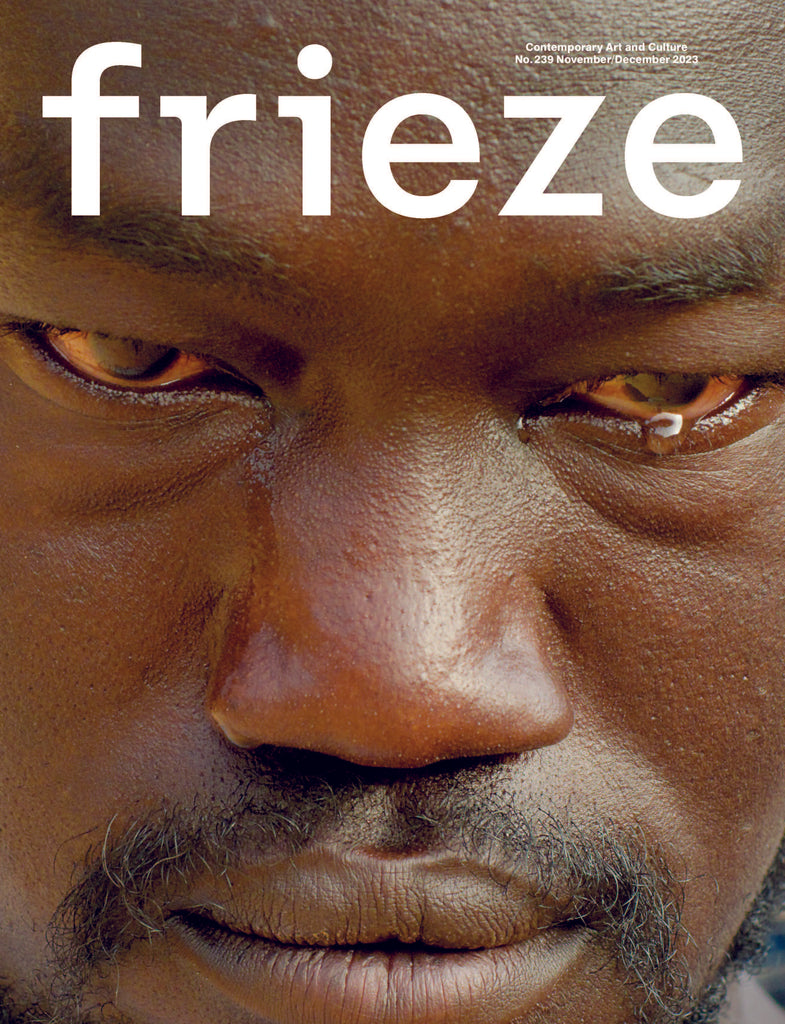‘The ensemble of Ali Cherri’s work grapples with the issues of the artist’s place in a world in crisis.’ – Wilson Tarbox
In the November/December issue of frieze, Wilson Tarbox profiles Ali Cherri, whose first solo show in Italy is on view at GAMeC Bergamo, and Ben Davis, Stephanie Dinkins, Mike Pepi, Noam Segal and Christopher Kulendran Thomas contribute to a discussion on the impact of AI technologies on artistic production.
Profile: Ali Cherri
‘Close examination of Cherri’s practice reveals it to be deeply invested in questions of human dignity and welfare.’ Wilson Tarbox visits the winner of the Silver Lion at last year’s Venice Biennale and considers the role of an artist in a time of political crisis.
Roundtable: The Face of The Deep
‘We want to offload our problems onto this technology, but it always comes back to the humans behind it and how we start those negotiations.’ As generative AI and large language models such as ChatGPT storm our creative industries, five artists and writers delve into a philosophical and political debate on the viability of machine artistry.
Also featuring
Simon Wu examines the year in Asian American media, asking if such a denomination can still exist; and Wassan Al-Khudhairi speaks to Hajra Waheed, ahead of the artist’s solo show at Contemporary Art Museum St. Louis. In ‘1,500 Words’, Robyn Brentano revisits Robert Wilson’s opera The Life and Times of Joseph Stalin (1973) on its 50th anniversary.
Columns: Re-evaluations
Brian Dillon ponders Catherine Millet in the #MeToo era; Paul Chan names Jeff Koons America’s most religious artist; Shiv Kotecha lauds Bernardo Bertolucci’s film The Dreamers (2003); and Orit Gat defines post-internet art as a product of digital culture’s seismic shift. Plus, Fernanda Brenner on the influence of Karim Aïnouz’s film Madame Satã (2002) on a generation of Brazilian artists.
Finally, Matthew McLean on a single work by Lutz Bacher. Plus, a new series of artist ‘to-do’ lists, and we bring you the latest iteration of our Lonely Arts column.





